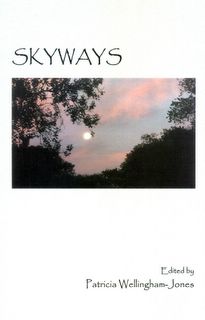
Chico-based California Nut Festival selects featured book
By DAN BARNETT
The California Nut Festival, scheduled for Feb. 17-24, is a week-long celebration of Chico's tree nut heritage, from almonds and walnuts to pistachios and more.
The festival is sponsored by the Far West Heritage Association, stewards of the Chico Museum and Patrick Ranch. In advance of the festivities, discussion groups are being formed to talk about the book-in-common, a provocative title to say the least.
"The Botany of Desire: A Plant's-Eye View of the World" ($13.95 in paperback from Random House) is by Michael Pollan, an instructor at the Graduate School of Journalism at UC Berkeley. Lyon Books in Chico will donate to the festival a portion from sales of the book. If you'd like to start a book group, contact Nancy Ostrom (nostrum@csuchico.edu).
Pollan writes that "the seeds of this book were first planted in my garden. ... I happened to be sowing rows in the neighborhood of a flowering apple tree that was fairly vibrating with bees. And what I found myself thinking about was this: What existential difference is there between the human being's role in this (or any) garden and the bumblebee's?"
What follows are four long essays about co-evolution, in which "both parties act on each other to advance their individual interests but wind up trading favors: food for the bee, transportation for the apple genes." Agriculture is about human-plant co-evolution, Pollan says; "it makes just as much sense to think of agriculture as something the grasses did to people as a way to conquer the trees."
Each of the essays is about some kind of human desire. The apple represents sweetness (not very abundant in the Old West); the tulip is beauty (feeding tulipomania in Holland from 1635-1637); marijuana feeds the human desire for intoxication; and the potato is a symbol of the human desire to control the natural world.
The apple chapter focuses on John Chapman, "Johnny Appleseed," who "understood he was working for the apples as much as they were working for him." Pollan writes that until Prohibition, "apples were something people drank. ... Johnny Appleseed was bringing the gift of alcohol to the frontier." And that brings up a key theme in the book, the interplay between "Apollo" (reason) and "Dionysius" (ecstasy), between the garden and the wilderness.
The author samples high grade cannabis in Amsterdam and muses on the nature of the "high," something, he says, that melts away short term memory and explains "the sense that time has slowed or even stopped. For it is only by forgetting that we ... approach the experience of living in the present moment."
The potato is about biotechnology. Pollan writes of a Monsanto patent on the NewLeaf potato (since, apparently, withdrawn from market) which is bioengineered to contain a natural pesticide. That would cut down on the need for chemical sprays to protect potatoes, but it would also mean, unless great care were taken, that bugs would more quickly adapt to the NewLeaf variety (since spraying is only periodic but the potatoes them-selves are around for the entire season).
This is the dance of co-evolution. "The survival of the sweetest, the most beautiful, or the most intoxicating proceeds according to a dialectical process, a give-and-take between human desire and the universe of all plant possibility. It takes two, but it doesn't take intention, or consciousness." When it comes to plant and human, we are "in this boat together."
Dan Barnett teaches philosophy at Butte College. To submit review copies of published books, please send e-mail to dbarnett@maxinet.com. Copyright 2006 by Chico Enterprise-Record. Used by permission.


